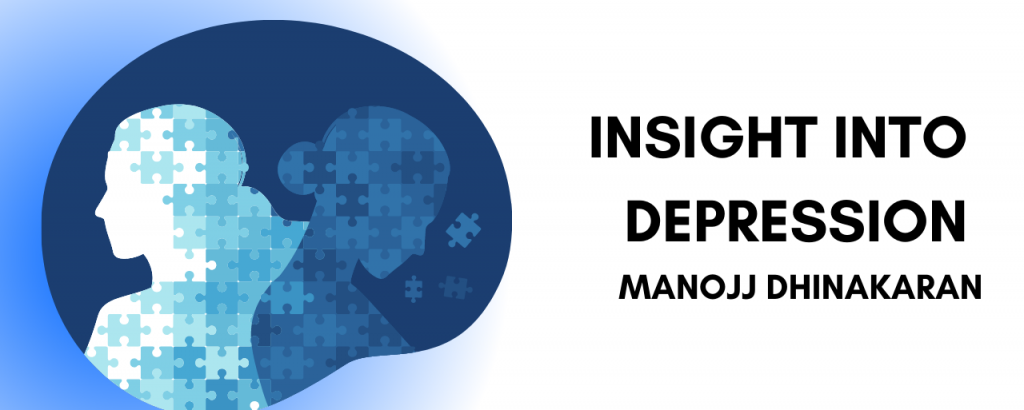1. Depression? When we hear of the word depression, we often associate it with being sad and disinterested. But on a deeper level, it is completely different from the general sadness or mood swings that we misidentify it for. It is a common yet serious disorder that can lead to severe impairment of the physical […]

1. Depression? When we hear of the word depression, we often associate it with being sad and disinterested. But on a deeper level, it is completely different from the general sadness or mood swings that we misidentify it for. It is a common yet serious disorder that can lead to severe impairment of the physical and mental ability of a person. Thus, requiring medical intervention.
2. Diagnosis: The American Psychiatric Association’s Diagnostic and Statistical Manual (DSM 5) lists the following as symptoms for depression, if you experience any five symptoms from the few mentioned here persistently for more than 2 weeks then it is advised that you seek medical intervention from a professional,
(* In case of suicidal thoughts please try getting help immediately)
3. The Difference: Though by textbook definitions some of the symptoms seem similar that of anguish, in the case of depression the emotions are so overwhelming that they start to affect the day-to-day activities of a person. People who are in the grief of bereavement or those who lost a job they loved, under these circumstances, need not be necessarily depressed. Though the degrees of pain equate each other, being sad is momentary, while depression is perpetual. Also, sad people know what they are sad about, but the latter don’t in most of the cases. This is the distinction that separates depression from what it is not.
4. What it feels like: Depression is one of the worst feelings, the person feels like they are drowning in water gasping for air. They have the urge to cry but they can’t and when they do cry, they feel like not stopping it. To them, the whole world seems meaningless and hopeless with no joy. There may be physical manifestations like headaches, nausea, and body pain. The point of living would be like automation in doing tasks, merely existing and not living. They constantly ruminate on being non-existing or disappear without a trace leaving everything behind. All this they feel continuous, day in and day out.
5. Voice of the voiceless: People who are depressed are mostly voiceless, unable to tell their pain and suffering for various reasons. One of the major reasons is that their emotions are not validated and instead, stigmatised by others; often dismissed as a passing phase. Another reason that they feel is that they don’t want to be a burden to their loved ones and feel no one would understand nor listen to them. All this leads to them building walls around themselves, thereby becoming less and less social and finally stop talking.
6. What Can We Do? We firstly need to understand that depression is neither a phase nor a physical condition that can be treated with pills or some pleasure-seeking activity. More importantly, we must be patient with them despite the snapping and monotony. Saying platitudes or just simply ordering them to change can only cause havoc rather than help them despite their good intentions. All they need is our support and us taking time to listen to them. It’s we holding their hand telling them that we care, and we being there for them matters the most.
7. Seeking Professional Help: It is again important to understand that professional medical help is highly essential in treating depression. Our positive words and reassurances are not just enough to heal them. Though it may offer some solace, it is only momentary because they are not affected by the external world, but by the internal mind. The only way to properly treat this condition is through psychotherapy. Understanding that taking help through therapy is not a taboo and it being not only about pills is essential.
8. “Depression is natural, and not something that needs to be stigmatized. As a friend, being empathetic and compassionate with the distressed is important. Hear them out and help them seek medical support.”
Writer: Manojj Dhinakaran